As Bafta season intensifies, Geoffrey Macnab looks at the streamlined voting process and how this year’s nominations will be revealed just before those of the Oscars.
The EE British Academy Film Awards, as the event has now been rechristened, take place this year in its customary pre-Oscars slot, on Feb 10.
It is 11 years since the Baftas changed dates to make sure the ceremony took place in advance of the Academy Awards. In the process, Bafta was effectively reborn. Last year’s ceremony, broadcast on the BBC, attracted an audience of more than 5 million. Rather than being an after-thought at the end of an already long awards season, Bafta is now bang in the middle — and it wants to stay that way.
“We spent a lot of time consulting with the industry. They absolutely bought into our changes and have supported us ever since,” says Bafta chief executive Amanda Berry. “There are lots of examples of how the ceremony has grown. If you look at 2001, it [the ceremony] only went out in one country [the UK], but if you look at the film awards, they now go out in every major territory.”
Nomination buzz
This year, the awards calendar feels even more squeezed. The Bafta nominations are announced on Wednesday, Jan 9, only a day before the now-earlier Oscar nominations are revealed. Will the media have the appetite to cover both sets with the usual fanfare, or is there a danger Bafta’s announcement will be eclipsed?
“We will have to suck it and see,” Bafta’s head of film, Deena Wallace, says of the near collision in dates. The hope is the nominations will be looked at together, with the media comparing and contrasting both lists. More importantly, the actual awards ceremonies are still two weeks apart.
“Staying ahead of the Oscars is important for us,” Berry insists. “It keeps us relevant to the industry, which is critical for us. What did change is that the Oscars talked a lot about moving their dates. A lot of organisations, ourselves included, came out early to announce our date in the hope it would stop them doing that.”
To Berry’s relief, the Academy Awards organisers did not change ceremony dates. Had they done so, a merry dance would have ensued. “Quite frankly, if they had moved earlier, everybody else would have moved earlier too,” she says.
Berry suggests swapping dates would have backfired, putting more pressure on distributors to ensure voters saw the films. “Also, it could have meant some of the films weren’t as known to the viewing public.”
The Baftas thus remain the last major awards ceremony before the Oscars.
Bucking a trend that has seen declining ratings for film awards shows, audiences for the Baftas have continued to grow. An obvious reason for its increasing prominence is its international flavour. The awards attract the same Hollywood stars who will be up for Oscars two weeks later.
“I am often questioned as to why the Baftas aren’t just about British film. If they were, we wouldn’t have the international attention we have,” Berry says. “We shine a very bright light on film generally, but with a particular emphasis on British film because we’re coming from the UK.”
To qualify for awards, films need to have been released by Friday, Feb 8, two days before the event. The intention is to ensure the same films being honoured by the Golden Globes, the Screen Actors’ Guild and the Oscars are in the frame for Baftas. It is also important to ensure the films being celebrated are known to the public.
“I am acutely aware it’s a very crowded marketplace in January and February in the UK,” Berry acknowledges, but points out distributors releasing films in this window can use Bafta nominations to boost theatrical campaigns.
The right to vote
Bafta caps the number of voting members at 6,500. This year, the process is being simplified to include two rounds of voting rather than three. As before, members will vote for both the nominations and the winner in the best film category and the four performance categories. Members will also have the opportunity to opt in to chapters to vote for the nominees and winner in animation, documentary, film not in the English language and outstanding British film. Meanwhile, individual chapters will now decide the nominees and members will vote for the winner in adapted screenplay and original screenplay, cinematography, costume design, director, editing, make-up and hair, original music, production design, sound and special visual effects.
“Obviously, our single biggest challenge this year has been the simplifying of the awards voting structure, which was very complex,” says Nik Powell, chair of the Bafta Film Committee. “Two-round voting has been under consideration for some time… the three-round system is very complicated for the outside world to understand and indeed quite complicated for Bafta members to understand. What we’ve got now is very much simpler.”
Voting is compulsory. Members are required to “engage with the process” and either to vote or to abstain. If they do not do so, their voting rights will be removed.
In the digital age, many of the questions about piracy and the expense of staging Bafta campaigns appear to have gone away. It is now permissible under Bafta rules for distributors to arrange for members to see films online. Wallace notes Bafta has had no problems in recent years with piracy of screeners.
“Everybody is at it, from the great big gorilla studios to the little tiny independents,” Premier’s Liz Miller says of how all UK distributors now embrace Bafta campaigns and send out screeners. “Not only have they figured out how to do it, but they are enthusiastic about it in ways they previously weren’t.”
Miller estimates there are far more Bafta screenings than ever before. “Now everybody is pursuing it [Bafta] tooth and nail,” she says, but argues that members cannot “vote properly” unless they have seen the film “properly” — and that means on the big screen.
The awards, which cost more than $1.5m to stage, will again be held in the Royal Opera House, Covent Garden, with Stephen Fry returning as host. The challenge is to fit in multiple awards — and speeches — while making the ceremony engaging for the TV audience. The Film Awards is Bafta’s flagship event but represents only a small part of the organisation’s overall activities. There are Bafta Television and Television Craft awards; the Video Game awards; constant lectures and Q&As; British Academy Scotland awards; British Academy Cymru Wales awards; the Bafta Los Angeles Britannia Awards (a glitzy affair broadcast on prime time on BBC America for the first time this year); children’s awards and children’s votes and ‘Life In Pictures’ events (for example, one in which Billy Connolly will be honoured in Glasgow).
The organisation is also involved in training events for writers and talent showcases such as the Bafta ‘Brits to Watch’ event in Los Angeles, which has received the support of Prince William. It takes films into schools and arranges Christmas screenings in hospices. Overall, Bafta organises 250 events a year.
As Wallace points out, this is not a case of the organisation over-reaching itself. It is more to do with working as closely as possible with bodies such as the BFI or the British Council. “We have a unique position because we have access to this enormous talent,” she says of the Bafta members. “When we work with other partners, we make sure we bring something specific and clear that only Bafta could bring.”




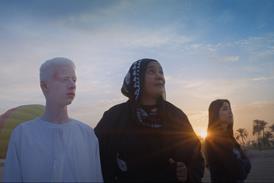

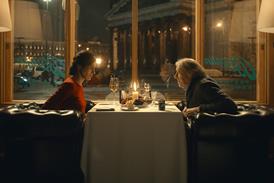
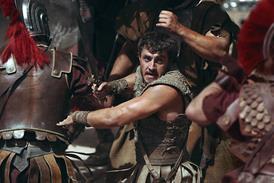






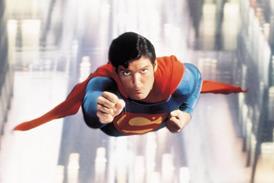

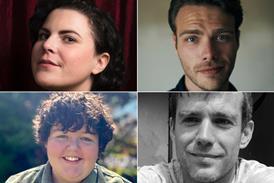




No comments yet